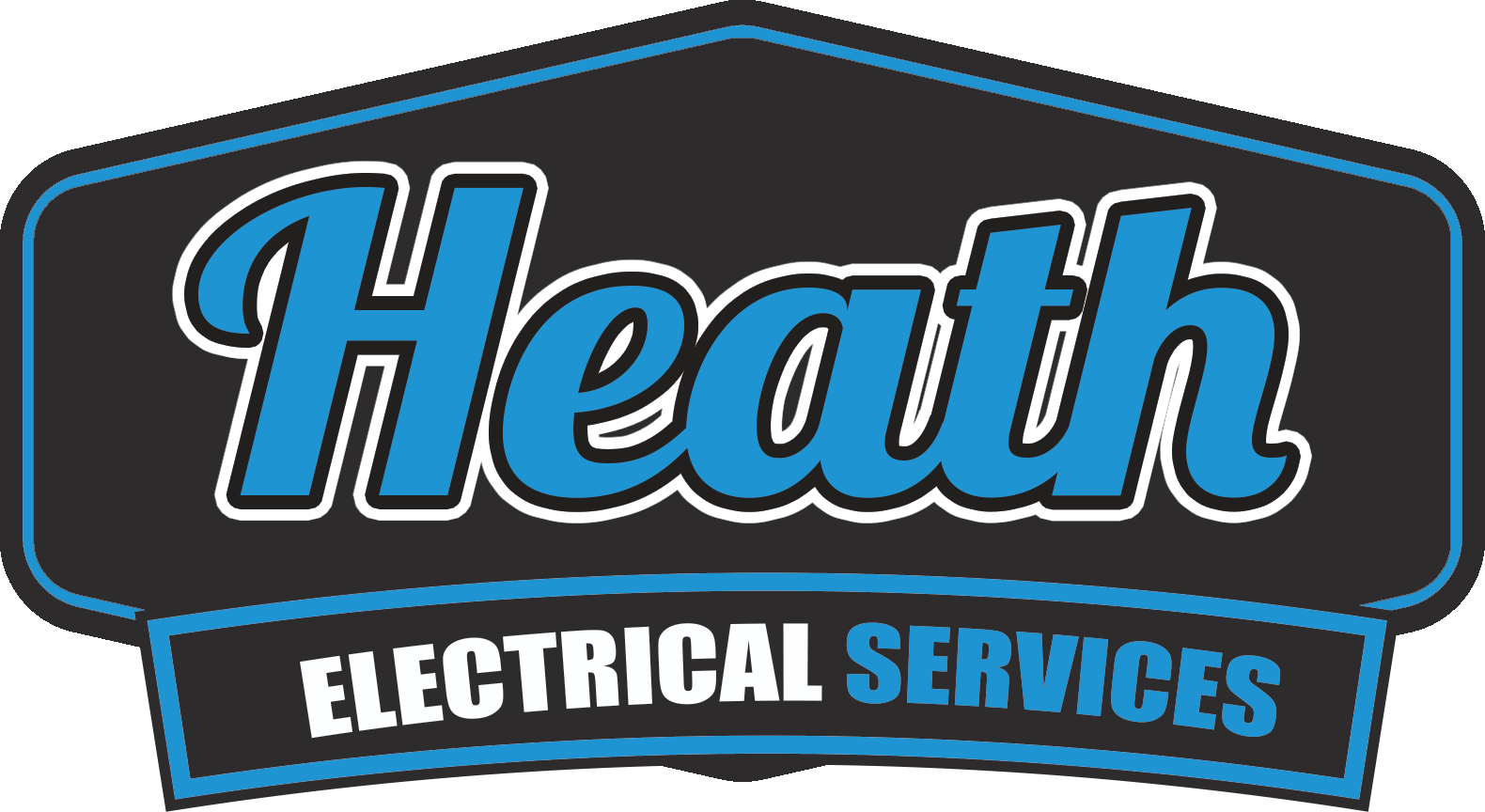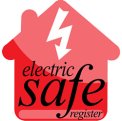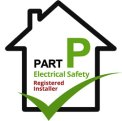Whether it’s household appliances or workplace equipment, each day, we are surrounded by electrical devices. While most of us can go our entire lives without experiencing an electrical incident or, worst-case scenario, accident, it is ever so important to familiarise ourselves with the signs that a problem is brewing.
By knowing the major causes of electrical accidents and methods for prevention, we can not only keep ourselves safe but also those around us, our home and workplace. As experienced electrical contractors in Milton Keynes, we have put together some advice on how to do this.
Your comprehensive guide to electrical accidents
In order to remain safe when using electrical equipment and appliances, it’s worthwhile to familiarise yourself with basic electrical safety knowledge. This will help to minimise the risk of incidents and prevent accidents.
Having spent many years as certified electricians in Milton Keynes, we have encountered many clients who have, whether they realised it or not, left themselves exposed to the dangers of electricity. We would always prefer to be called out to a client to assess a potential risk than for someone to try to fix the issue themselves and risk injury or the creation of unsafe wiring that may cause future issues. We’re always happy to give as much advice as we can on how to minimise dangers, so we’ve put together a guide that runs through the following:
- What is an electrical accident?
- Types of electrical accidents
- Main causes of electrical accidents
- Electrical accident statistics
- How to prevent electrical accidents
- Electrical hazards definition
- Electrical hazards examples
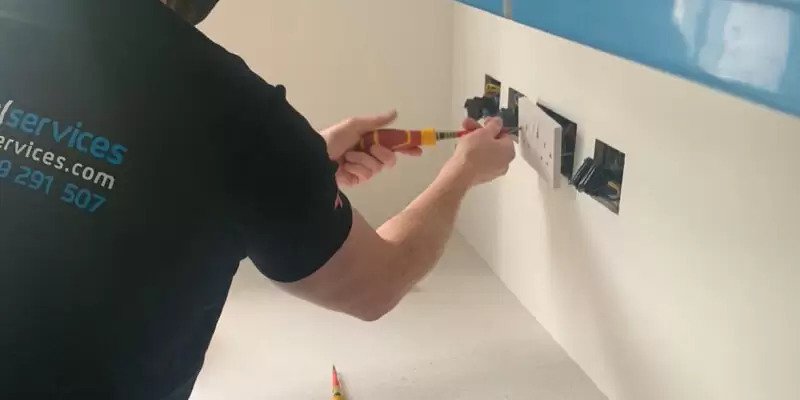
What is an electrical accident?
An electrical accident is an undesired, unexpected event that has been caused by an electrical current and has resulted in either injury or property damage. Electrical accidents are more common than you expect. In fact, according to Electrical Safety First, there are about 19,300 accidental domestic fires in the UK each year with an electrical-related cause, whether this may be faulty leads or misuse of appliances. This is why it’s so important to ensure that you understand the types and causes of electrical accidents and how you cant prevent them.
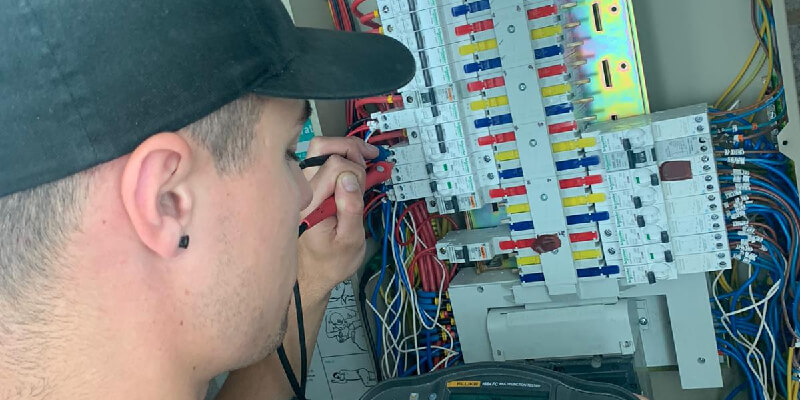
Types of electrical accidents
There are three main types of electrical accidents that you may encounter at home or even in the workplace. Each of these can vary from mild to severe depending on the strength of the electrical current and factors such as water enhancing the danger.
- Electrical shock: this occurs when a person (or animal) comes into contact with a live part. In this instance, the electrical current will flow through the body and travel to the nearest earthed source. Exposure to electrical energy may result in no injury at all or may result in devastating damage or death. A mild electric shock will leave a slight tingling sensation in the area that made contact with the current. A moderate electric shock will cause your muscles to contract, making it hard to pull away from the electric current. A severe electric shock can cause heart failure.
- Electrical burn: this usually coincides with a moderate or severe electric shock as the shock causes tissue to burn. Electric burns to the skin can leave scarring, but burns can also be internal as the electric current can travel through the bone and burn surrounding deep tissue.
- Electrical fires: although electrical fires may not initially harm you, they can cause severe damage to any property and are a health and safety hazard for everyone in the building. Electrical fires occur when a current ignites a flammable material. The natural reaction for onlookers may be to try to extinguish the fire with water; however, this may increase the risk of further injuries to all involved as water conducts electricity and can make the flames worse. We would always urge anyone to contact the emergency services in these circumstances.
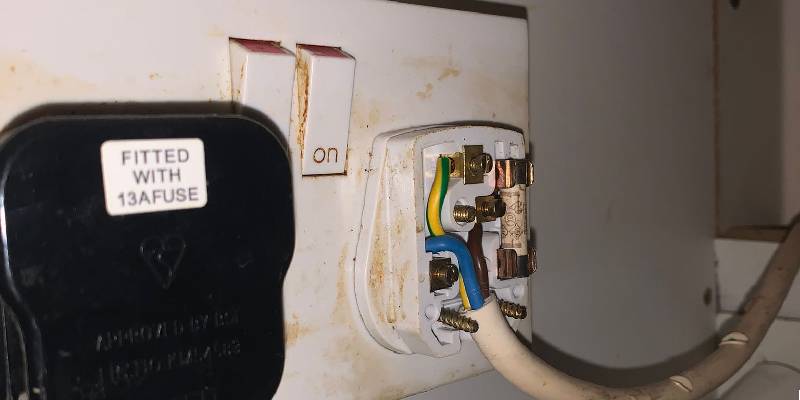
Main causes of electrical accidents
In a world where we use electrical devices, appliances and equipment in almost all aspects of everyday life, electrical accidents are understandably common. Yet most can be prevented by understanding the dangers. Typically, electrical accidents are caused by contact with water, faulty wiring, attempting to fix electrical devices yourself, naked cords and damaged plugs. So, let’s take a closer look at each of these causes.
Water
Water is a conductor of electricity and can, therefore, be extremely dangerous when put into contact with an electrical current. Electrical appliances can come into contact with water fairly easily in daily life, for example, if you spill a glass of water on your desk at work or have hair straighteners and hairdryers in the bathroom. It is extremely important that you minimise the risk of an electrical shock by moving electrical appliances away from water and ensuring that any drinks are secure so that the chance of spillages is reduced.
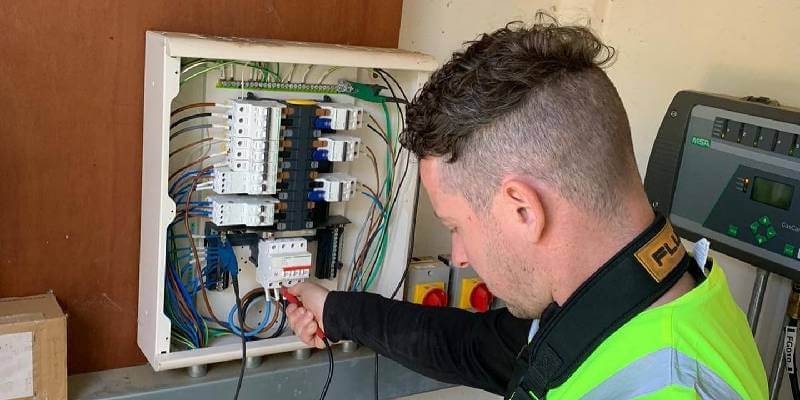
Faulty wiring
Faulty wiring can occur for many reasons, including poorly installed equipment, incorrect use and a lack of maintenance. Particularly in the workplace, wires and cables should be regularly inspected by a professional electrician to ensure that health and safety standards are met.
Overloading at socket outlets and/or extension leads may cause the circuit to overload. This can not only be harmful to the user but also risks damage to expensive equipment within the home or workplace.
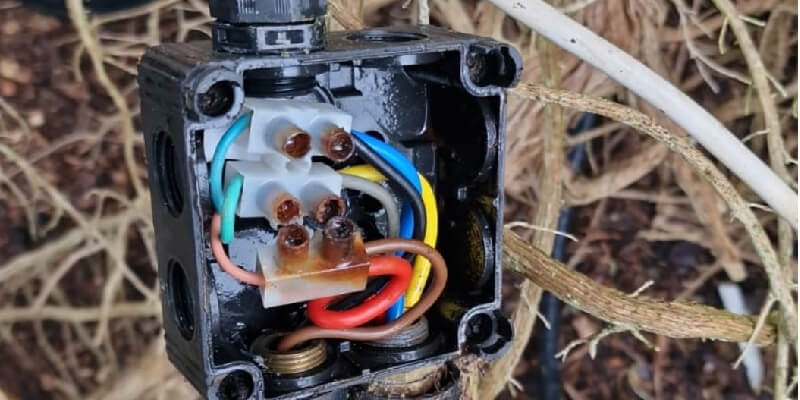
Attempting to fix electrical faults
Many people believe that using DIY methods on electrical wiring and cabling is as easy as hammering a nail into the wall, but this is most definitely not the case. In fact, by attempting to fix electrical equipment without any training, you can put yourself at serious risk of an electric shock and, if not correctly resolved, more severe consequences.
There is a whole host of potential hazards when working with electricity which is why you should always use a qualified and accredited electrician with relevant knowledge and expertise. Many people underestimate the complexity of working with electrics and attempt to fix faults themselves without fully understanding the danger. Lack of knowledge and overconfidence is one of the most common causes of electrical accidents and injuries. Not only are you creating risk for yourself and others, but you may also affect the electrical system in your home or workplace, which could be an expensive problem to fix.
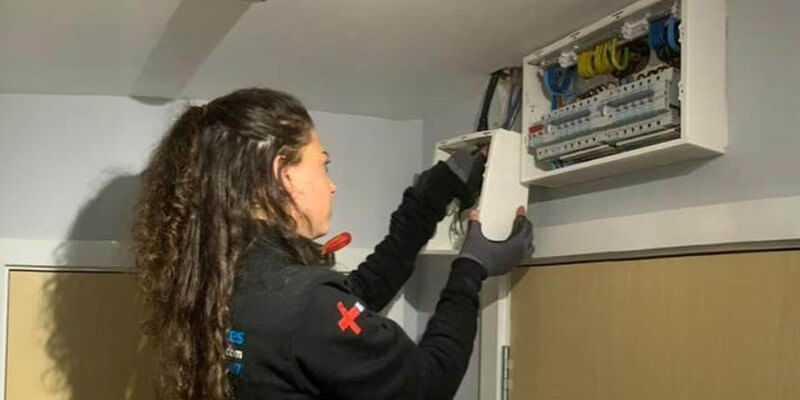
Naked cords & damaged plugs
Damaged cords can occur when an electrical appliance is overused or misused, causing the protective outer sheath to split, exposing the wires inside. This can be extremely dangerous as the sheath is designed to insulate the conductors and prevent injury. Without this sheath in place, you could come into contact with a live current. Caution should be exercised when handling damaged wires and cables – make sure the power is turned off before taking any other action. If something that you cannot simply remove and replace is damaged, we advise that you contact an electrician.
Plugs are designed so that an electrical current can safely be passed through the cable and into your appliance. As part of the appliance that is often subject to frequent use, it is susceptible to wear and tear. If one of the metal pins that go into the plug socket snaps off the plug, stop using the appliance immediately, as it is now a threat to your safety.
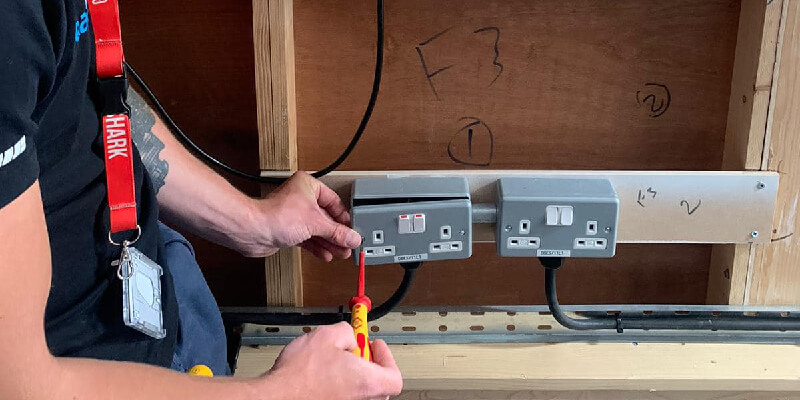
Electrical accident statistics
Now that we’ve explained what electrical accidents are, as well as the different types and common causes, you may be wondering how frequently they actually occur. The stats are pretty shocking (no pun intended), especially when so many are easily preventable:
How many electrical accidents occur every year?
Electrical accidents in the home injure around 350,000 people each year.
How many fatal accidents are caused by electricity every year?
It is estimated that 70 people in the UK die of electrocution each year.
How many electrical accidents occur in the workplace every year?
Around 1,000 accidents involving electricity are reported to the HSE each year, with approximately 30 of these being fatal.
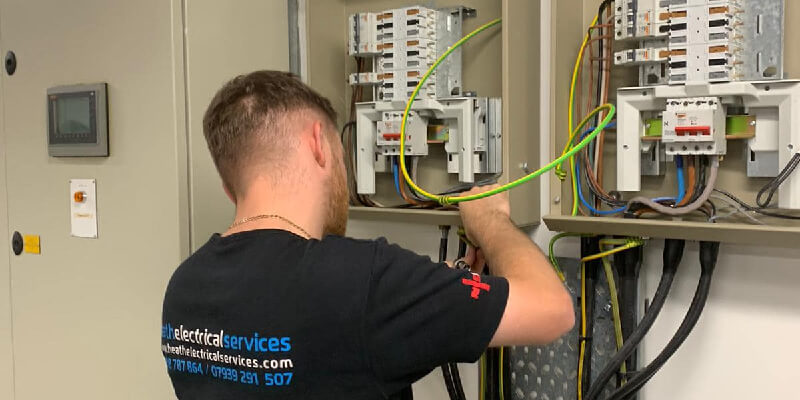
How to prevent electrical accidents
We are finishing our guide with extra information on how to prevent electrical accidents to help you keep yourself and those around you free from danger.
How to prevent electrical accidents at home
Most of these solutions are common sense but we often overlook them, thinking that the risk isn’t too high or that the consequences aren’t likely to be severe:
- Have installations checked by approved electricians: It is highly recommended to get all of your electrical installations assessed by certified professionals every ten years. Our NICEIC approved team of electrical inspections in Milton Keynes are trained in electrical inspections, so please do not hesitate to get in touch to schedule testing.
- Never use damaged appliances: you should never continue to use a damaged extension cord or defective device, even if it doesn’t seem dangerous.
- Unplug appliances with care: do not pull on the wire to unplug devices as this can damage the cable. Instead, remove the plug directly from the socket.
- Be careful when drilling into walls: if you plan to make holes in a wall, be sure to use an electricity detector beforehand to spot any power sources. This will prevent you from drilling into a wire, for instance, and causing a severe accident.
- Do not overload sockets: although it may be tempting to plug all of your devices into a multi-outlet socket, try to spread them between several outlets to prevent overheating.
- Keep appliances away from water: aside from the obvious examples, this should also include ensuring that you unplug your iron before filling it up with water.
For more handy tips on preventing electrical accidents at home, we recommend taking a look at the ROSPA website, which has published a detailed guide.
How to prevent electrical accidents in the workplace
As a business or commercial property owner, it is your responsibility to keep your staff safe, and this includes matters of electrical safety. Policies should be put in place to minimise the likelihood of accidents, and all employees should be briefed on these precautions. As a business or site owner, we recommend reading through the information on sites such as HSE and Healthy Working Lives, and checking the regulations regarding your specific industry. It would also be beneficial to take a read through our previous guide on the most common electrical hazards in the workplace.
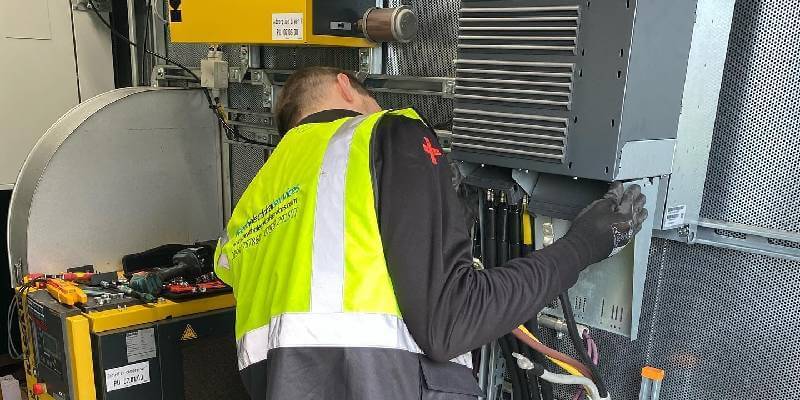
Once precautionary measures have been put in place, you must also ensure that you schedule regular testing of electrical installations and equipment. The type of testing differs based on the electrical installation in question, with the most common being the following:
- Periodic tests & EICR reports: these two come hand-in-hand and allow all wiring and fixed electrical equipment to be thoroughly assessed. After the periodic test, you will be provided with an EICR report which runs through any items that require immediate attention, along with recommended improvements.
- Planned preventative maintenance: also known as PPM programmes, these maintenance contracts involve regular visits to your business to check that the installations meet the latest standards and that any required remedial work is carried out.
- PAT testing: this helps your business to meet electrical regulations. The test is completed on portable appliances such as PCs and printers, and involves a visual inspection as well as an electrical assessment using a PAT testing machine.
All of the above tests are services that we offer here at Heath Electrical Services. Please do not hesitate to get in touch with us – our NICEIC approved commercial electricians in Milton Keynes are here to help.
Electrical hazards definition
Ultimately, a hazard is a dangerous situation or item that may cause an accident and increase the likelihood of harm being caused in a specific case, whether an electrical or day-to-day hazard. The hazard is the catalyst of an accident, meaning that accidents cannot or are less likely to happen if hazards are well controlled or eliminated; this is what makes it so essential to understand what the dangers in your domestic or commercial property are and know the risks that these may cause. With inadequate training, knowledge or experience, it is unsafe to try eliminating these hazards yourself, depending on their severity. We recommend always speaking to our professional electricians in Milton Keynes to try and solve the issue and prevent any dangers or injury.
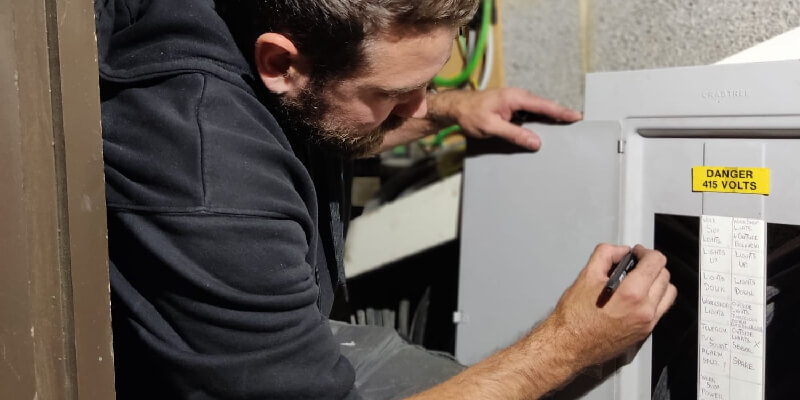
Electrical hazards examples
There are multiple electrical hazards that you may spot around your domestic or commercial property; if noticed, it is critical you voice this right away and contact a team of professionals to assist you in solving this issue before anyone can be hurt. These include:
- Overhead power lines: These power lines are everywhere and have incredibly high voltages of about 230 volts to 400,000 volts, which can cause severe burns and sometimes even fatalities. You must remain at least 10 feet away from these overhead power lines and conduct site surveys, or contact our team to complete a site survey to ensure nothing is stored beneath the lines. Moreover, ensure safety barriers and signs are nearby to inform everyone of the danger these hazards can cause.
- Damaged tools and equipment: Exposure to damaged tools or equipment can be extremely unsafe and dangerous, especially on commercial property. Never try to fix anything yourself unless you are qualified, instead contact our team of reputable commercial electricians in Milton Keynes to come and fully solve the problem. However, check for cracks, cuts, and abrasions on cables and wires to lessen the hazard, and replace or have any faulty or damaged tools repaired!
- Wet conditions: If checking for commercial hazards, make sure there is no water or liquids near any electrical equipment; similar to not having glasses of water near electricity in domestic households, it is important never to operate electrical equipment in wet locations as this will greatly increase the risk of danger and electrocution. If equipment has been wet, get one of our qualified electrical contractors in Milton Keynes to inspect the equipment and deem it safe to use before using it.
- Improper grounding: To decrease any unwanted voltage or risk of electrocution, make sure to check that your equipment is properly grounded and secure.
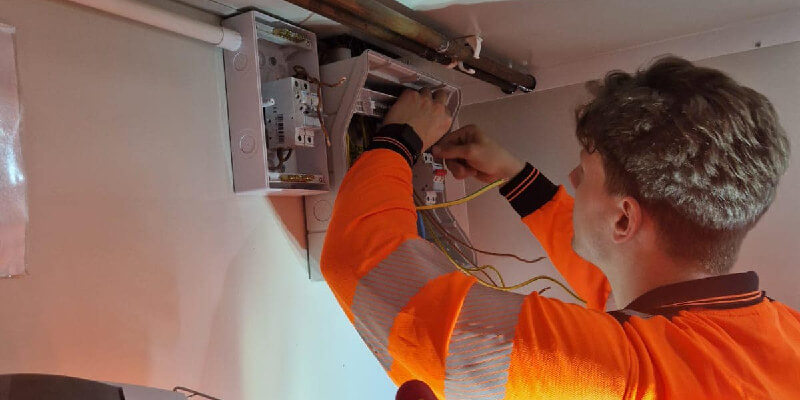
Keeping you safe from electrical dangers
By understanding the basics of electrical safety, you can minimise the risk of a problem occurring, whether that’s by keeping an eye out for damaged wiring, knowing when the time has come to call a professional if you suspect an issue, or arranging electrical inspections with our electrical contractors in Milton Keynes. By following this simple advice, we can all continue to enjoy the many benefits of the incredible power at our fingertips daily!
